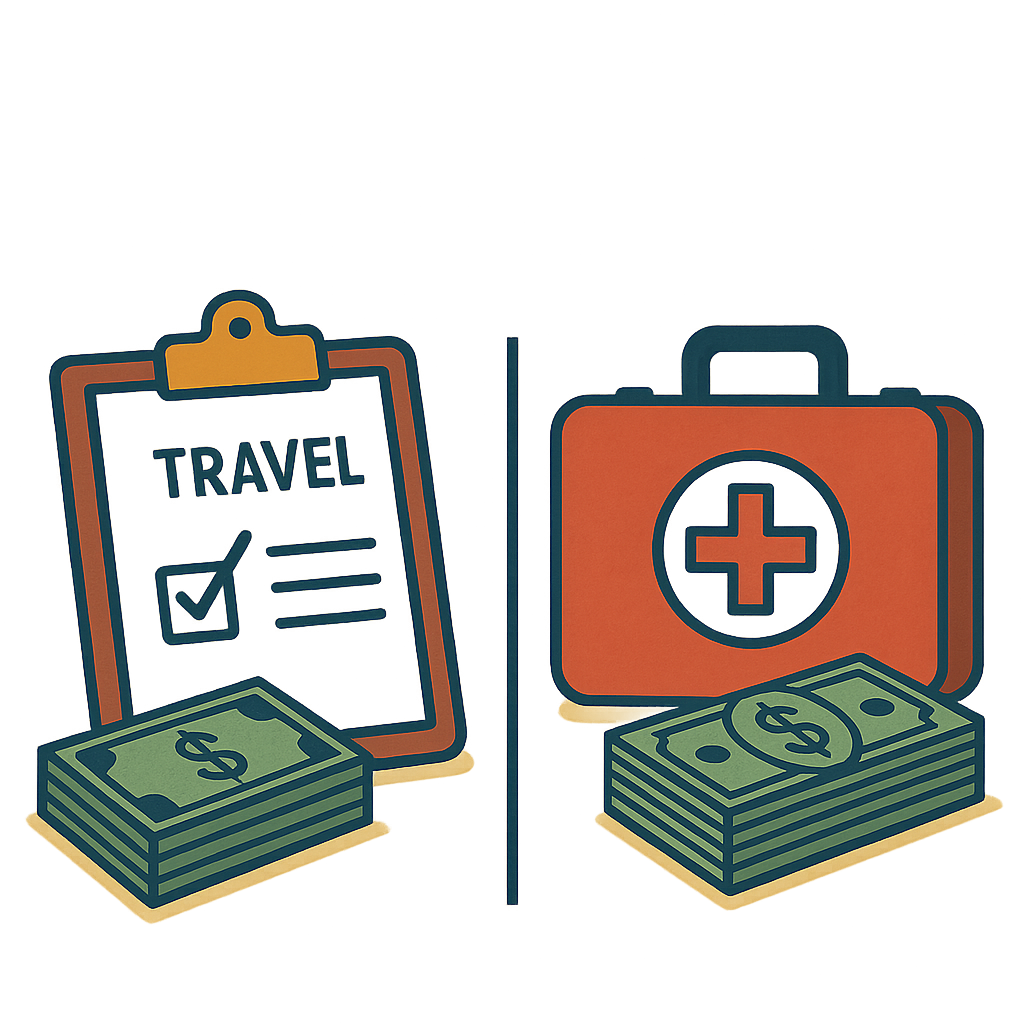Traveling abroad is a thrilling experience, offering opportunities for exploration, cultural enrichment, and personal growth. However, amidst the excitement of planning a getaway, there are practical considerations that should not be overlooked. One such consideration is travel insurance, particularly when it comes to covering medical emergencies. While the prospect of purchasing insurance may seem like an unnecessary expense, the reality is that the cost of travel insurance pales in comparison to the exorbitant expenses associated with medical emergencies abroad. In this post, we will explore the often-overlooked financial implications of being caught without proper coverage during an international trip, and why investing in travel insurance can save you from ruinous financial consequences.
The Unexpected Nature of Medical Emergencies
Medical emergencies, by their very nature, are unpredictable. Whether you suffer a sudden illness, sustain an injury, or encounter a more serious health issue, the potential for these events to disrupt your travels—and your financial wellbeing—should not be underestimated. Unfortunately, many travelers assume that their existing health insurance will cover them while abroad. While some domestic health plans may provide limited international coverage, the reality is that many fail to adequately address the full spectrum of medical expenses incurred outside the country. From hospital stays and surgeries to evacuation costs and repatriation, the financial burden can escalate rapidly.
The Financial Toll of Medical Emergencies Abroad
To understand the financial risks, let’s break down some typical costs associated with medical care in popular travel destinations.
- Emergency Medical Treatment: In countries with advanced healthcare systems, such as those in Europe, emergency medical treatment can be extremely costly without insurance. For instance, a simple doctor’s visit can cost anywhere from $100 to $500, while hospital stays can run into the thousands. A basic procedure like an appendectomy could cost upwards of $20,000 in some countries.
- Medical Evacuation: Perhaps the most startling cost that travelers fail to consider is medical evacuation. In certain cases, particularly in remote or underdeveloped regions, an evacuation may be necessary to transport a patient to a hospital equipped with the necessary medical facilities. Airlifting a patient back to their home country can easily exceed $100,000, not to mention the logistical and legal complexities involved in such operations.
- Repatriation of Remains: While morbid to contemplate, the repatriation of remains in the event of a fatality can cost between $5,000 and $20,000, depending on the country of origin and destination. This is an essential but often overlooked aspect of travel insurance, especially for those traveling to more dangerous regions or engaging in adventurous activities.
- Prescription Medications: If you require prescription medication during your travels, the cost of refilling prescriptions abroad can be significantly higher than at home. In some cases, the medication may not even be available, forcing you to seek alternatives or pay a premium for expedited services.
The numbers are not insignificant, and they underscore the reality that medical emergencies abroad can lead to crippling financial consequences for those unprepared for the costs.
The Cost of Travel Insurance: A Small Price for Peace of Mind
Travel insurance, especially medical coverage, is designed to mitigate these risks by providing financial protection in the event of illness or injury while abroad. For a relatively small premium—often a fraction of the overall cost of the trip—you can secure comprehensive medical coverage that includes emergency treatment, evacuation, and repatriation.
Premiums for travel insurance typically range from 4% to 10% of the total cost of your trip, depending on factors such as your age, destination, and the coverage limits selected. For instance, if you are traveling for two weeks with a total trip cost of $3,000, your insurance might cost around $120 to $300. While this may seem like an additional expense, consider the alternative. Should you experience a medical emergency and require evacuation or treatment, the costs could easily exceed the price of insurance by a factor of ten or more.
In addition to medical coverage, many policies also offer trip cancellation, lost baggage, and other important protections, making them a versatile investment for travelers seeking peace of mind.
The Cost of Inaction: A Risk Worth Avoiding
The harsh reality is that the absence of travel insurance can leave you vulnerable to life-altering financial setbacks. Consider the case of an American tourist in Europe who fell ill while on vacation. Without insurance, the individual was forced to pay $15,000 for hospitalization, a fee that would have been largely covered by a travel insurance policy. Similarly, a family on a remote vacation in Southeast Asia experienced a sudden medical emergency, leading to a $50,000 air ambulance ride to a nearby hospital. Had they opted for travel insurance, these unforeseen expenses would have been covered, sparing them from financial ruin.
A Sound Investment in Your Wellbeing
The bottom line is this: travel insurance, particularly for medical emergencies, is a prudent and necessary investment for any traveler heading abroad. While the premiums may seem like an added expense, the cost of not having adequate coverage can be catastrophic. No one expects to get sick or injured while traveling, but the unpredictable nature of life means that these events do happen, and when they do, they can create a financial burden that lasts long after the vacation ends.
By securing travel insurance, you are ensuring that the financial impact of medical emergencies will not overshadow the joy of your trip. It is a small price to pay for peace of mind, and it may be the difference between a brief inconvenience and a long-lasting financial hardship.
Travel smarter and protect yourself with the coverage you need, and enjoy the adventure without the financial worry.



No responses yet